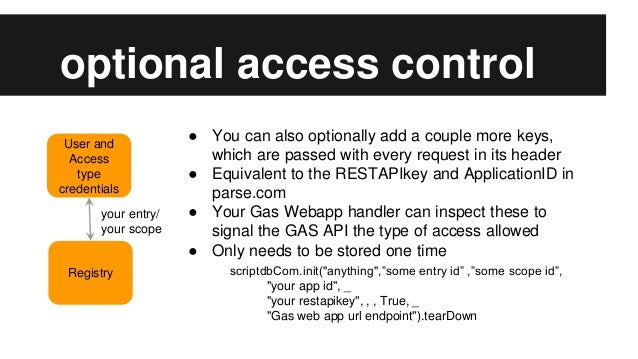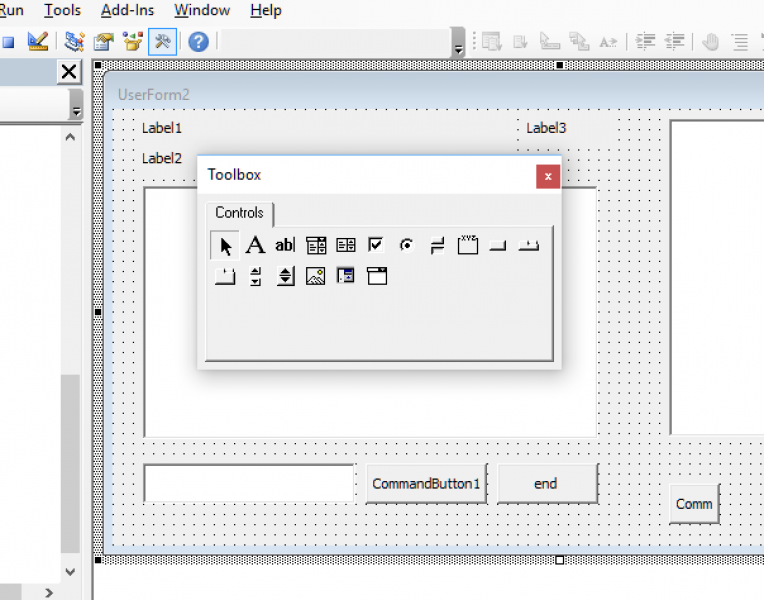

This is only possible with Firmware versions V1.11 or higher. In this case the request would be as below: Syntax: curl -H "Authorization: Basic //?"Įxample curl -H "Authorization: Basic YWRtaW46QWRtaW5AMTIz" -H "accept-encoding: gzip,ĭeflate" "" Example Call API key using bearer authentication
Access api vba password#
if our username is “admin” and password is Then the string will be “YWRtaW46QWRtaW5AMTIz” in base 64 encoding. In the above call, we can also add username and password to HTTP header in base64 encoded format and then talk to device. Example call username + password Syntax: curl -user “:” “ Example: curl -user “admin:myAdminPassword$19” “" For authentication username+password or API key can be used. That contains my "listening" code, it eats up about 50% of the CPU.You can send all JSON API calls via command shell by using the HTTP request syntax using cURL. When I send it to the Access app, pReceiveMsg isn't triggered. And, just to keep things interesting, when I open the Access form That is, it triggers pReceiveMsg in the listening app. Like I said, when I send the message to the VB6 app, it works fine. In the above example, I put the handle of my Access form into text 1, and the message I want to send in txtString. Call SendMessage(lHwnd, WM_COPYDATA, Me.hwnd, cds) Call CopyMemory(buf(1), ByVal sString, Len(sString))Įnd With ' Send the string. Assign lpData ' the address of the byte array. ' Copy the string into a byte array, ' converting it to ASCII. If sString = "" Then Exit Sub If Me.Text1.Text = "" Then Exit Sub ' Get the handle of the target application's visible window.

WParam As Long, lParam As Any) As Long Private Sub cmdSendData_Click()ĭim sString As String Dim lHwnd As Long Dim cds As COPYDATASTRUCT "SendMessageA" ( ByVal hwnd As Long, ByVal wMsg As Long, ByVal _ Private Declare Function SendMessage Lib "user32" Alias _ My sample VB6 app sends a message this way: SString = Left$(sString, InStr(1, sString, Chr$(0)) - 1)Įnd Select If bfailed Then Call MsgBox( "Data transferred incorrectly", vbExclamation, "Error Receiving Data") ' Convert the ASCII byte array back to a Unicode string.

Call CopyMemory(buf(1), ByVal cds.lpData, cds.cbData) ' Copy the string that was passed into a byte array. If aStrings(l) "Item #" & l Then bfailed = True Next Case 3 ' A string was passed. ' fill the listbox, and check that data was transferred correctlyįor l = LBound(aStrings) To UBound(aStrings) ReDim aStrings(0 To lnumEls) As String On Error Resume Next For l = 0 To UBound(aStrings)ĪStrings(l) = pb.ReadProperty(LTrim$(Str$(l))) ReDim bytes(0 To cds.cbData - 1) As Byte ' Copy the transferred data to a byte array Call CopyMemory(bytes(0), ByVal cds.lpData, cds.cbData) If aDoubles(l) l Then bfailed = True Next Case 2 ' An array of strings in a property bag. ReDim aDoubles(0 To lnumEls - 1) As Double Call CopyMemory(aDoubles(0), ByVal cds.lpData, cds.cbData)įor l = LBound(aDoubles) To UBound(aDoubles) Call CopyMemory(cds, ByVal lParam, Len(cds))Ĭase 1 ' An array of Doubles.

LpPrevWndProc = SetWindowLong(lHwnd, GWL_WNDPROC, AddressOf fWindowProc)ĭebug.Print "pHook value = " & lpPrevWndProcĭim sString As String Dim l As Long Dim lnumEls As Long Dim bfailed As Boolean Dim pb As New PropertyBagĭim buf(1 To 255) As Byte ' Copy the data sent to this application ' into a local structure.
Access api vba windows#
' Sub class the form to trap for Windows messages. ( ByVal hwnd As Long, ByVal nIndex As Long, ByVal dwNewLong As _ Declare Function SetWindowLong Lib "user32" Alias "SetWindowLongA" _


 0 kommentar(er)
0 kommentar(er)
